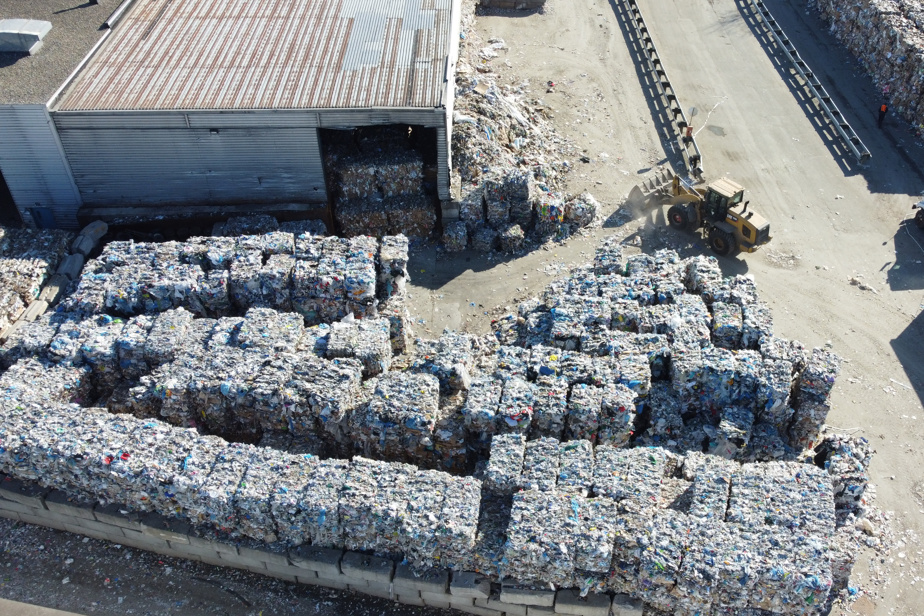
Towns on the outskirts of Montreal will soon have to emulate the metropolis by banning plastic grocery bags, normalizing compost collection and limiting the distribution of Publisac.
Posted at 4:04 pm
Updated at 4:47 pm.
At least the Montreal Metropolitan Community (CMM) is planning a proposal for consultation in the coming months. CMM covers 82 cities in Greater Montreal.
The document also calls for a ban on weekly garbage collection across the region by 2027 to encourage 4 million residents to recycle and compost more. A garbage truck is limited to 26 trips per year.
The dumps currently used by the region are filling up at a fast pace. The only solution, according to the CMM: is to significantly reduce (-10%) the amount of waste produced by each inhabitant of a metropolitan area. In total, Greater Montreal throws away 5 million tons of materials each year.
“Landfill sites will reach their maximum capacity within ten years,” Valérie Plante, mayor of Montreal, who chairs the CMM, said in a press release. We must take strong and ambitious steps to promote reduction at source and reuse, thereby achieving zero landfill. »
Half of Greater Montreal’s waste is buried at the Enviro Connection complex in Terrebonne, which will be completed in 2029. The other dumps are all outside the region, notably Saint-Sophie-des-Laurentides and Saint-Thomas de Joliette.
CMM’s proposal will be the subject of public consultation in 2023. If approved, in late 2023 or early 2024, each municipality would have to adopt a by-law to change these regulations within its territory.
“We have a big challenge”
CMM’s Environment Team Leader Emilie Charbonneau was involved in the creation of this draft Metropolitan Residual Materials Management Plan.
In a telephone interview, she pointed out that only half of Greater Montreal residents’ trash is buried in the area. In addition to measures to reduce the amount of waste produced at source, the mayors of the CMM should also begin to think about the possibility of opening a new dump, if possible within the limits of Greater Montreal.
We realize that we have a big challenge regarding our final remains. On the one hand we want to reduce them. On the other hand, it takes us a solution.
Emily Charbonneau, Environment Team Leader, CMM
The document, due for consultation in the coming months, also shows that the CMM is failing, or in the process of failing, many of the goals of its latest Metropolitan Plan for managing residual materials.
In 2020, 50% of recyclable materials will be recycled (target: 70% in 2018), for construction waste this figure will drop to 29% (target: 70% in 2020). Residents of Greater Montreal produce far more tonnes of waste than desired (758 kg/capita, with a target of 600 kg/capita in 2020).
“It takes a lot of effort”
Carel Ménard of the Quebec Common Front for Ecological Waste Management was not disheartened by the results.
“There’s still a lot of work to be done,” he admitted in a telephone interview. For the city of Montreal and CMM, I am happy that the solution is no longer just recycling, but above all reduction at the source. »
The environmentalist welcomed the idea of extending the measures already applied in the metropolis regarding Publicac and plastic bags to all of Greater Montreal. “It was a great decision,” he said. He said that as the proposals are coming from the cities, the chances of their adoption are good.
But the best news of the CMM plan, Karel Menard confirmed, is the desire to think about the establishment of one (or more) dumps within the limits of its own territory. If the city of Montreal managed its own waste, the extremely high landfill costs would force cities and businesses to think about real solutions to massively divert waste from the dump. “We’re getting there. We can’t do it like we did 10, 20, 30, 40 years ago,” he said.






